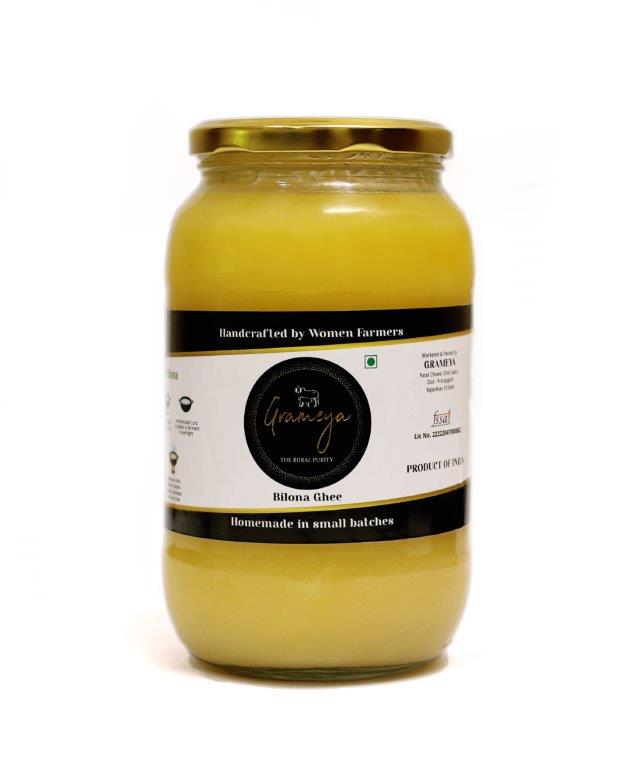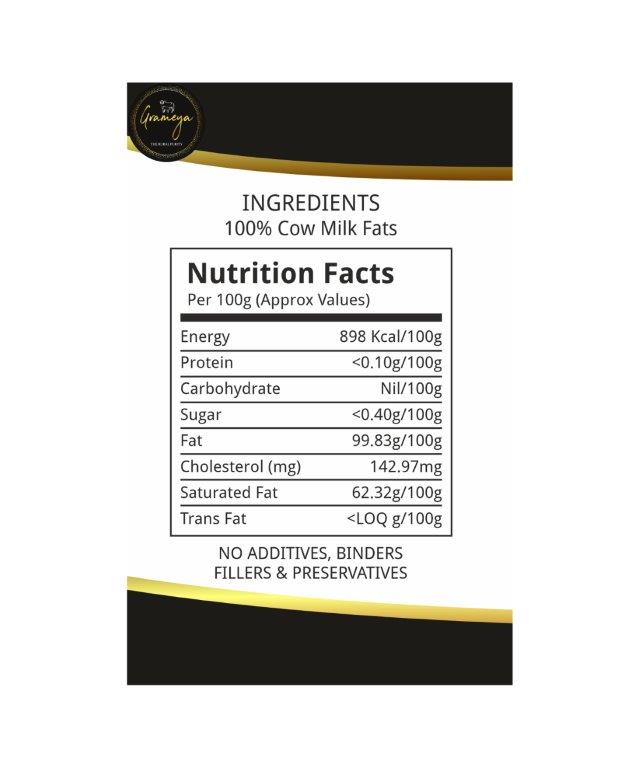Ghee has been a staple in traditional Indian cuisine and Ayurvedic medicine for centuries. Ghee holds several important characteristics that makes it significant in various aspects:
- Nutritional Value: Ghee is rich in fat-soluble vitamins like A, D, E, and K. These vitamins are essential for various bodily functions, including maintaining healthy skin, vision, and bone health.
- High Smoke Point: Ghee has a high smoke point (around 450°F or 232°C), making it suitable for cooking at high temperatures without breaking down into harmful compounds. This stability makes it ideal for frying and sautéing.
- Lactose and Casein-Free: During the clarification process, milk solids are removed, making ghee a safe option for individuals who are lactose intolerant or sensitive to casein, a milk protein.
- Rich Flavor: Ghee has a nutty and slightly sweet flavor that adds richness to various dishes. It enhances the taste of foods, making it a popular choice in many cuisines around the world.
- Digestive Health: According to Ayurveda, ghee is believed to promote healthy digestion and even balance stomach acid levels. It is often used in medicinal formulations and traditional remedies.
- Healthy Fats: While ghee is a saturated fat, emerging research suggests that moderate consumption of healthy saturated fats is beneficial. Ghee contains medium-chain fatty acids (MCFAs), which can be a source of sustained energy for the body. Specially good for growing children.
- Ayurvedic Importance: In Ayurvedic practices, ghee is considered a satvic food, promoting purity, harmony, and mental clarity. It is also used in rituals and ceremonies.
- Moisturizing and Nourishing: Ghee is sometimes used in skincare as a moisturizer due to its nourishing properties. It is believed to be beneficial for maintaining healthy skin.
- Promotes healthy pregnancy
- Improves immunity
Note:
The aroma, flavour and colour of the Ghee may slightly vary due to change in Fodder and season. Hence, there is no chemical processing involved for standardisation purposes. Each lot might vary but it’s 100% pure and unadulterated or processed.
Below is the comparison on Bilona Ghee v/s Normal Ghee:
# | Factor | Bilona Ghee | Normal Ghee |
| 1 | Production Method | Traditional churning process (bilona method) | Modern industrial methods |
| 2 | Nutrient Retention | More nutrients retained due to slow churning and heating | May lose some nutrients in the process |
| 3 | Chemical Additives | Produced without additives | May contain some additives or preservatives |
| 4 | Aroma and Flavor | Richer and more pronounced aroma and flavor | Flavor may vary based on processing methods |
| 5 | Digestibility | Claimed to be more easily digestible | Easily digestible for most people |
| 6 | Ayurvedic Benefits | Often considered to have additional health benefits according to Ayurveda | May have health benefits but may vary |
| 7 | Price | Generally more expensive due to the labor-intensive process | Often more affordable |






